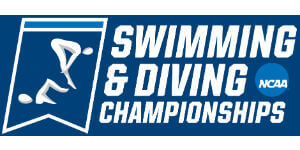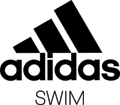Clark Smith Exorcises Demons and Rallies Texas Longhorns
NCAA DI editorial coverage is proudly sponsored by Adidas. Visit adidasswimming.com for more information on our sponsor. For all the latest coverage, check out our event coverage page.
 CLICK HERE FOR LIVE RESULTS
CLICK HERE FOR LIVE RESULTS
By David Rieder.
After watching their teammates come from behind to win the 200 free relay at the NCAA championships, two Texas Longhorns stepped up to the blocks in the 500 free final, one looking for a repeat and one looking for redemption.
Townley Haas had a second-straight NCAA title in mind after a freshman year effort in which he pulled away from the field to win in 4:09.00, making him the fifth-fastest performer in history in the event.
Clark Smith, meanwhile, had been the NCAA champion in the event in 2015 as a sophomore and then was on fire through the majority of his junior season. At the Texas Invite mid-season, he became the third-fastest performer in history in the 500 with his time of 4:08.82.
But come the championship meet, Smith was off. He finished more than eight seconds off his entry time in the 500, ending up 21st, and after more than 48 hours out of the racing pool, he swam his way to a 12th-place finish in the 1650, more than 18 seconds off his personal best.
Even after becoming an Olympian and an Olympic gold medalist, Smith had some negative feelings from last year to flush out.
“I was pissed off,” Smith said. “It was awful. I waited a whole year to swim that. Being on deck and seeing Townley win that was awesome, but to not be there when I had been there the year before, that was painful.”
He got his redemption. He went out quick, as he so often does, and he held tough as Haas and Michigan’s Felix Auboeck came at him on the final 100. Smith touched the wall in 4:08.42, cracking Peter Vanderkaay’s 9-year-old American record of 4:08.54.
“When I was 12 years old, I heard he went 4:08. Back then I was like a 5:00 500 freestyler, so that sounded unreal for someone to go that fast. To be here now, it’d kind of surreal,” Smith said.
“With all the criticism Clark has had to go through over the last year, being the overwhelming favorite and not making top 16, I think Clark takes that to heart sometimes, even though he doesn’t show it,” Schooling said. “For him to come back, put that aside and break the American record and be the fastest in history, I’m very proud of him.”
Next up was the 200 IM, and so continued the Longhorns’ run, as Will Licon picked up the win—even if he was not alone atop the podium. Licon finished tied with Florida’s Mark Szaranek at 1:40.67, much slower than the 1:40.04 he swam to win the NCAA title in the event last season and even behind his prelims time of 1:40.55.
“I don’t know what happened to him on the IM,” Texas head coach Eddie Reese said. “We haven’t really talked about it. His race plan this morning was really good. He doesn’t swim that fast in the morning usually. He has struggled to get in. So we really thought he was going to knock one for a loop. Just got out almost a second slower. You just can’t do that in this field.”
It did not take long for Licon to bounce back. He was tasked with swimming the breaststroke leg of the Longhorns’ 400 medley relay, as he had done each of the past two years. But in both of those cases, it was up to Schooling and Jack Conger to make up an early deficit.
Licon insisted that this year would be different.
“Licon was telling me, ‘We’re going to have the lead at the 200,’” Schooling recalled. “I was thinking, ‘Alright man, sure.’”
Well, Texas was up by almost a full second when Schooling went in the water. Backstroker John Shebat had led off in 44.58, just behind the 44.32 leadoff leg by Olympic gold medalist Ryan Murphy, and then Licon split 49.75, the fastest breaststroke leg in history.
“Two years ago, Eddie said he couldn’t do a 100. And look where we are today,” Schooling said of Licon. “He swam with a chip on his shoulder. He wanted to prove a lot of people wrong, especially Eddie. I’m all for proving Eddie wrong any time of the day.”
In the lead-up to the meet, Texas did not look like an overwhelming favorite on paper—not at the level of the Longhorns’ 127-point victory in 2015 or their dominant 190.5-point victory from last season.
Based on the psych sheets, NC State was projected to score the most points in swimming, and the always-strong Cal team and Caeleb Dressel’s Florida Gators figured to be in the hunt as well.
But seven events in, and it’s like déjà vu. Once again, four wins in five swimming events during the first two days. Yet again, a previously-unfathomable 400 medley relay time. And for one final time, seniors Smith, Licon and Jack Conger at the center of it all.
All of that has given the Longhorns an 83.5-point lead over Cal with two days to go.
“We swam like we had a chip on our shoulder today, like we had something to prove,” Schooling said. “We’re 80 points ahead, two days to go with our strongest events ahead of us. We’re going to keep chipping away, keep our heads down, keep plowing through. The job isn’t done until Saturday night when we jump in the pool.”
Right now, it’s tough to imagine any other team besides Texas jumping in the diving pool to celebrate in two days’ time.
All commentaries are the opinion of the author and do not necessarily reflect the views of Swimming World Magazine nor its staff.





